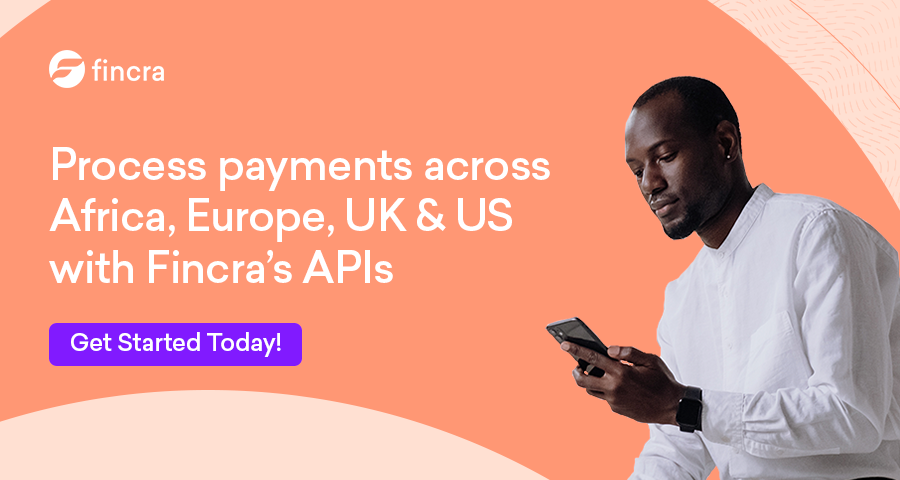BD Insider: Mercury Bank and African startups, Paystack receives PSP in Ghana
BD Insider, Letter 103 covers why Mercury Bank blocked the bank accounts of some African startups, Paystack's PSP license from the Bank of Ghana.

Subscribe to become a BD Insider here.
What are your thoughts about MTN Group buying 144 plots of virtual land in Ubuntuland? Some argue they bought the digital plots of land because of FOMO on what's happening in the metaverse, others say they're chasing clout.
MTN says it's the premise of their Ambition 2025 Strategy. I think it aligns with their slogan "Everywhere You Go", which they adopted in 2005 to replace "MTN: The Better Connection".
In this letter:
- Paystack receives a payment services provider license from the Bank of Ghana
- Reliance Health, Kudi and four other African startups make Y Combinator's Top Companies list
- Why did Mercury suspend the bank accounts of some African startups?
Meanwhile, use Fincra to receive payments locally, make payouts and scale across multiple markets.
Let's dive in!
Paystack receives a payment services provider licence from the Bank of Ghana
Paystack has received a PSP Enhanced Licence from the Bank of Ghana (BOG). “We're super excited to share that Paystack has received a Payment Services Provider (PSP) Enhanced License from the Bank of Ghana", the Nigerian fintech company headquartered in California said. With this new licence, "we're bringing the full Paystack experience to Ghana".
Paystack's pan-African expansion started with Ghana in 2018. Then it was acquired by Stripe in 2020 (the deal was finalised in January 2021) and expanded to South Africa in May 2021.
One of the functions of the BOG — like the Central Bank of Nigeria — is to promote the safety and soundness of all payment, clearing and settlement systems. A company is not supposed to operate any payment service platform without a valid licence from the BOG.
But as we know, innovation is often ahead of regulation. (For instance, what licence is Nigerian fintech startup Thepeer and LazerPay operating with? Hit me up if you know.) The Payment Systems and Services Act was enacted in 2019, almost a year after Paystack launched in Ghana.
Ghana's PSP Enhanced Licence might be likened to Nigeria's PSP Super Licence. With the PSP Enhanced Licence, Paystack can provide third-party payment gateway services, inward international remittance services, limited use closed-loop virtual cards (funded via refunds, rewards and users' other accounts), and print and personalise Europay, Mastercard, and Visa (EMV) cards.
PARTNER CONTENT — Integrate Fincra’s APIs for seamless local and international payments

Fincra provides easy-to-integrate payment APIs to receive local & international payments and make local & international transfers in EUR, GBP & NGN. The APIs are designed to fit into any existing payments application allowing fintechs to offer more solutions like virtual bank accounts in multiple currencies to customers and scale their services across Africa. Sign up for a quick demo on Fincra here.
Six African startups make Y Combinator's list of top companies
Y Combinator (YC) has released the February 2022 edition of its top companies list — that is, companies that have been part of its summer or winter cohorts. First released in 2018, the list includes private, public and exited companies valued at $150 million or more and are sorted by valuation or market cap as of February 2022.
As YC rightly noted, valuation at best is a nominal value of companies. It's not a reflection of a company's real value. But the accelerator continues to sort its top companies list by valuation because it's the most commonly available metric to compare companies in the startup world.
Also, because startups raise money year-round, the YC Top Companies list becomes outdated as soon as it's published. Hence, since 2021, YC refreshes the list every six months, in February and July. Look forward to another list in July.
No African company was among the inaugural 101-company list. Nigeria's fintech unicorn Flutterwave has been among YC Top Companies since 2019, and the only African company at that. In 2019, it ranked 97 out of 102 companies. In 2020, Flutterwave settled at the 115th position out of 132 companies. Last year, the $3 billion fintech company ranked 40 out of 159 companies.
More African companies made YC's February 2022 top 269 companies list. Flutterwave moved five places to the 35th position. Nigerian startups Reliance Health and Paystack make their debut at the 205th and 233rd positions, respectively. Kudi completes the four Nigerian companies listed at 263rd position.
Other African companies on the YC Top Companies list are Francophone Africa’s first unicorn Wave Mobile Money (53rd) and the leading super app in Francophone Africa Yassir (247th).
Why did Mercury restrict the bank accounts of some African startups?
Last Tuesday, Mercury, an American neobank for small businesses blocked the accounts of several African startups. Even though the exact reason for the restriction was not stated, Mercury stated in a mail to affected companies that their "accounts have been flagged for review by [its] compliance team" for what it described as a "check-up".
hurt
This sudden decision has hurt the affected companies as several of them are unable to fulfil their financial obligations. Even though Mercury has not publicly disclosed what warranted the restriction, Rest of World reported that "the unprecedented sanctions imposed on Russian financial institutions following the country’s invasion of Ukraine have spurred banks to review accounts in “high-risk” jurisdictions worldwide".
"Self-reliance looks like the ideal solution", writes Tekedia. Adding that "the restrictions should be a reminder to Nigerian tech CEOs and stakeholders that there is no other perfect alternative than to build their own international finance centre and buy offshore bank licenses so that startups can bank their money".
Recall that, in 2021, the Central Bank of Nigeria (CBN) announced that it will establish an International Financial Centre at the Eko Atlantic City for investors seeking to invest in critical sectors of the economy. According to the CBN Governor, Godwin Emefiele the Centre will be fully operational in the 2nd quarter of 2022.
🧐 Interesting?
Here are some of the interesting stories that we've come across in the past week:
- How Healthtracka is enabling prompt COVID-19 testing in Nigeria
- The informal sector can solve Nigeria's tax woes. How?
- African edtech startups should share more success stories. Why?
- Ckrowd will enable African creators to monetize their content. Really?
- Meet some African women with leading tech innovations.

💼 Job Opportunities
Check out these openings. Share them with your network.
Growth:
- Wave - Community Manager and other roles [Burkina Faso]
- Wave - PR and Communication Lead [Burkina Faso]
- Flutterwave - Social Media and Community Manager and other roles [Lagos]
- Eden Life - Community Manager and Growth Analyst
Product & Design:
- Wave - Senior Product Manager
- Reliance Health - Design Lead and other roles
- Paystack - Product Specialist [Nigeria, South Africa & Ghana]
- Kudi - Data Analyst [Lagos, Kenya, Rwanda & Ghana]
Engineering:
- Paystack - Senior Automation Engineer
- Moove - Senior Frontend Engineer [Lagos]
- Eden Life - Junior Backend Engineer
- Kudi - Frontend Engineer [Nigeria]
Thanks for reading and sharing
Have a great week!
🖊 Johnstone and Daniel






